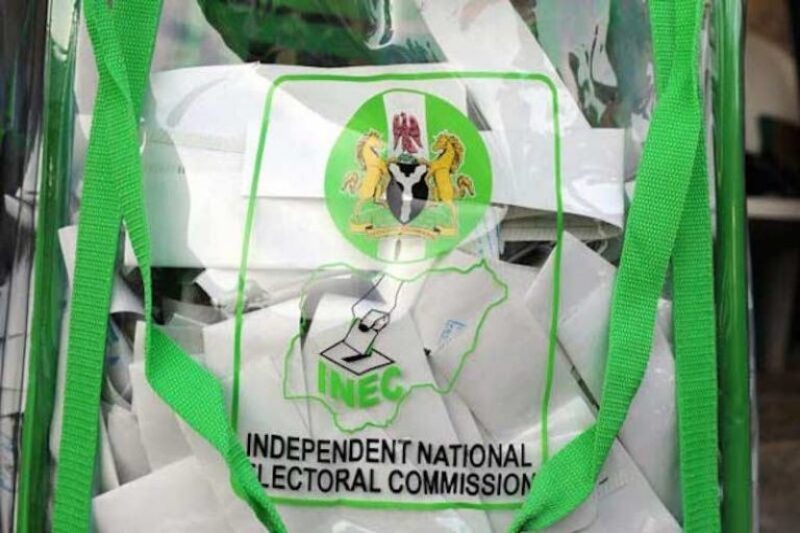Nigerians have reacted with dismay at the news that there have been attempted hacks on the Independent National Electoral Commission’s computer database, saying such attacks could result in political instability, disunity, violence, as well as rigged voting in the coming elections later this month.
After Mahmood Yakubu, the INEC chairman, announced the attempted hacks, posts on social media – particularly Twitter – flooded in as Nigerians shared their worries about the matter.
Most said the INEC should have been prepared for and should have expected such attacks in the run-up to the elections on February 25.
Mathew Osia, a Nigerian on the Twitter handle, @Matthew04903060, tweeted: “You [INEC] should have been prepared for that, it is standard all over the world.”
Sunday Chijioke Joseph, whose Twitter handle is @SundayChijiok22, said the INEC should ensure its cyber security was sound so that no one could hack the commission’s database.
However, he said, Nigerians believed in INEC and that it would do all it could to ensure a “free, fair & credible electoral process” that would result in the right person becoming the next president.
Hafsa Muhammad, on the Twitter handle @HafsaMuhammad4, said: “All hands must be on deck to checkmate and ensure peaceful elections. We’re anxious to vote out this incompetence.”
Umar Sanda, a public affairs analyst in Maiduguri, the capital of Borno State, told RNI that it became evident that INEC faced serious challenges when Yakubu publicly disclosed that there been cyber-attacks on the commission’s database.
“This is a serious threat to the upcoming 2023 general elections on February 25. It is right for the Nigerian government to take the necessary measures to stop such attacks by introducing strict IT solutions, frameworks and policies, as well as restrategising the roles of the National Communications Commission (NCC) and the National Information Technology Development Agency (NITDA), among other tech agencies, to ensure an effective and well-secured working server or database system for INEC ahead of the elections.
“This kind of issue must be addressed before the elections start because, if it is not, cyber insecurity could bring about political instability, disunity and violence within the country, which is already divided into six geopolitical zones all with different cultural backgrounds, tribes, ethnicities and religions.
“The political instability that I’m talking about could result in a situation whereby the INEC announces a particular political party’s candidate as the winner, when in fact that is not the case because he won only through rigging or hacking.”
Sanda said the federal government should not take the issues of hacking or cyber-attacks lightly. Rather, it should work tirelessly to find a lasting solution to the problem.
Usman Kachalla Ali, the chief executive officer (CEO) of Global Tech (UK) and a member of staff at the information communication technology (ICT) department of the University of Maiduguri, told RNI that a cyber-attack was an attempt to gain or obtain illegal access to a computer or computer system or database or server belonging to a particular organisation or agency, whether private or public, to steal classified information that could cause damage or harm to that organisation or agency.
“For example,” he said, “the cyber-attacks on INEC’s database or computer system is an attempt to hack or steal classified information and such cyber-attacks can be used as a tool to steal or change and rig the outcome of the elections. This would compromise the outcomes.
“Therefore, it’s imperative for the Nigerian government to come up with strong cyber security measures to protect INEC’s computer system or database or server against such unauthorised illegal access or attacks.
“We are living in a modern world and every day cyber attackers are learning new ways to steal classified information by hacking into databases or servers. So, it is imperative for the government to combat such cyber-crime immediately.
Representing Yacubu, Lawrence Bayode, director of ICT, addressed the 2023 National Conference of the National Association of Judiciary Correspondents (NAJUC) in Abuja on Thursday, January 26, during which the hackings were disclosed. The theme of his talk was “2023 General Elections; Judiciary and Sustainability of Nigeria’s Democracy”.
He said the attacks were made from different parts of the world, not only Nigeria. When the database was checked, it became obvious that people in France had tried to get into the system.
Bayode told the conference that no one would build a house without a door or window that was not secured. “We have done our best to ensure that our system is secured.”
He assured attendees of the conference that the surfaced vulnerabilities of the Bimodal Voter Registration System (BVAS), the INEC Result Viewing Portal (IReV) and the backend had been well-secured to make it extremely difficult for hackers to get into the system.
Bayode reiterated that there would be no voting if a person did not have a permanent voters card (PVC) and accreditation as provided in Section 47(1) of the Electoral Act, 2022.
Abubakar Malami (SAN), the attorney-general and Minister of Justice, represented by his media aide, Umar Gwandu, commended the media for its role in sustaining Nigeria’s democracy and urged people not to sell their votes, which was they were doing if they sold their PVCs.
He made it clear that those with temporary voters cards would not be allowed to vote.
In September last year, INEC disclosed that hackers from Asia had launched cyber attacks on its portal during the Ekiti and Osun states’ governorship elections but they had been outwitted.
Yakubu said at the time that hackers were on the rampage and had launched several cyber attacks on its portal to gain access and compromise authentic election results.
He said the hackers were from Asia and INEC had “to be on our toes every day to make sure that we protect the portal”.
SHETTIMA LAWAN MONGUNO








